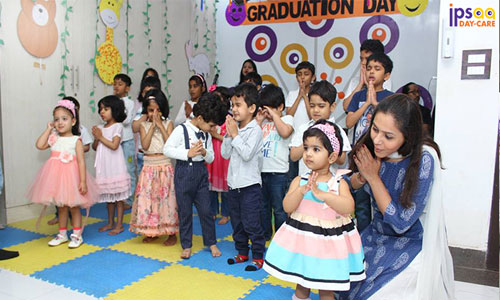As your children grow up and interact with other members of society, it is important to teach them the right way to conduct themselves in specific situations. Further, it is also important to enable them to make their own judgement about what is right and what is not. Here are some suggestions on what to keep in mind when trying to teach your children proper manners and etiquette.
The old saying that children are like sponges is true, they tend to soak up every influence around them. Manners need to be taught, shown, and reinforced by their parents and others around them. If you want your child to have good manners, you must make sure you do as well. Use polite language like ‘Please’, ‘Thank you’, ‘Excuse me’, ‘May I’ etc. when you are with your child. To give positive reinforcement, encourage them when they are polite. Further, be cautious of the fact children are likely to model your biases. It is important to be aware of your biases and refrain from making them public in front of your child. Teach your child to judge a person by their character and not race, gender, religion, or country.

While deciding on the interactions that you should groom your child for, it is important to consider the age of the people they are likely to interact with, besides your child’s ability to follow your guidance. Children must know that older family members will expect something completely different from what their peers will respond to. They also need to learn that some of their friends might have bad manners, and it is not okay to follow them.
Always talk to your children and listen for their areas of struggle when they interact with other people, and coach them whenever required. While it may be alright to correct your child on the spot sometimes as young children often do not realise what they are doing, be mindful of their sensitivity. For example if you are speaking with your friend, your child might think that it is okay to interrupt you. Beg your friend’s pardon and let your child know that his or her interruption is inappropriate. However, if your child is sensitive, you can speak with him or her privately.
Teaching good manners to your child is about teaching your child respect for others, for themselves and for their parents. Teach them the importance of respecting other people’s feelings and needs. As they learn to listen more, speak less, esteem others and humble themselves, your child’s distinguished behaviour will begin to shine forth.

